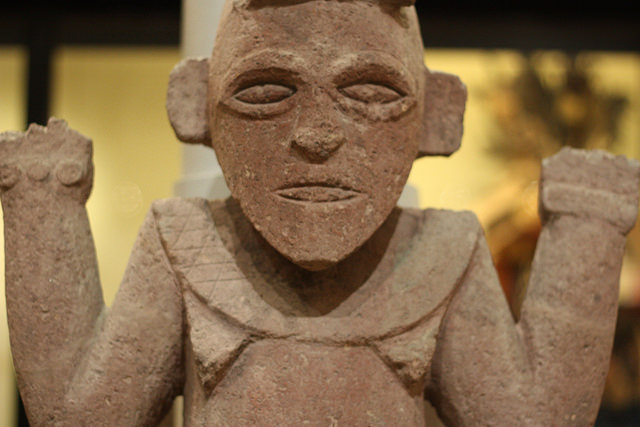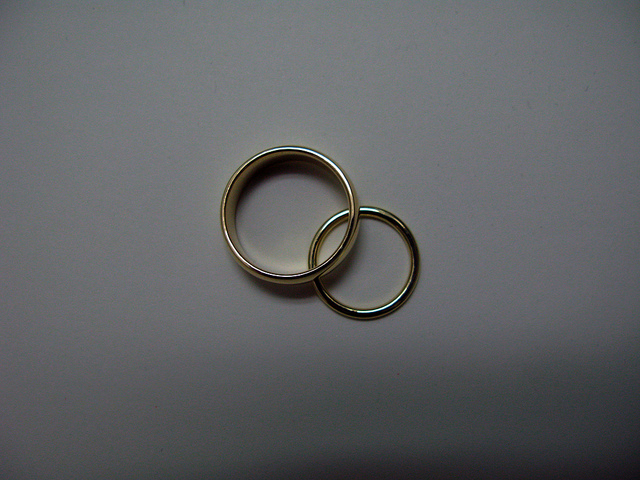
Can Doctrine Become an Idol?
Now, I’m a fairly new Lutheran, and certainly no expert or authority on our beliefs, but I at least know we hold our confessions in high esteem.
We are often passionate and perhaps a bit stubborn. I, personally, don’t see this as bad. I think this fervor has helped to keep us rooted in scriptural truth for centuries.
Yet I have often heard the warning: “Doctrine can become an idol”. And typically from folks who have left the Lutheran Church-Missouri Synod, actually. For months, I pondered this, weighing it for any possible validity. Were my friends right? Was my church, were my pastors, were all the historical theologians possibly making an idol of our doctrine? And is that even possible?
Let’s start with the basics first…
What is Doctrine?
This word may have a negative connotation for some — and the reasons why are beyond the scope of this post and best saved for another day. Yet the word merely means “that which is taught”. It’s a teaching. A set of beliefs. Nothing scary. Really.
And all churches have doctrine — even those who despise the word “doctrine” — for all churches have a set of confessions, truths, beliefs they teach their congregants.
Moving along…
What is an Idol?
If your faith and trust be right, then is your god also true; and, on the other hand, if your trust be false and wrong, then you have not the true God; for these two belong together, faith and God. That now, I say, upon which you set your heart and put your trust is properly your god.
– LC I 3
Here in Martin Luther’s Large Catechism, he explains whatever we put our trust in becomes our god, our idol — whether that be our money, our job, our skills, etc. And per the first commandment, we know we are not to look to these for comfort, but instead to God alone, trusting in Him alone for what we need.
But to cling to Him with the heart is nothing else than to trust in Him entirely. For this reason He wishes to turn us away from everything else that exists outside of Him, and to draw us to Himself, namely, because He is the only eternal good.
– LC I 15 (emphasis mine)
Basically, an idol is anything we turn to, cling to or trust in instead of God. And therefore, an idol must have one particular quality: It must be contrary to God, and likewise contrary to His Word. Whether it is the idol itself which is corrupt, or merely our heart toward it, an idol must — in some way — contradict or conflict with scripture.
Something true, pure, and in line with the inerrant and infallible Word of God could never, and would never, be able to take the place of Christ and His Gospel.
This leads to the next question…
What Is Truth?
I’d venture to say most who claim to be Christians believe the Word of God is Truth. Absolute Truth. Inerrant. Infallible. Sufficient. Yet in our postmodern world it is not fashionable or loving to claim to believe in absolute Truth — or rather, to claim to know that Truth. We are inundated with the “truth is relative” mantra. Many who combat this with the assertion that “God’s Truth is absolute” still argue that we — poor, sinful humans — cannot possibly know that Truth and claim it or confess it with any certainty.
There is an assumption made that because God has not revealed everything to us in His Word, and because we live in a fallen world, plagued by sin, none of us can possibly know which doctrine is True, and not simply “true to us” (as the postmodern phrase goes).
However, if we could not discern True doctrine from false, why would the epistles be filled with instruction to hold fast to the former and guard against the latter?
He must hold firm to the trustworthy word as taught, so that he may be able to give instruction in sound doctrine and also to rebuke those who contradict it.
– Titus 1:9
But as for you, teach what accords with sound doctrine.
– Titus 2:1
I appeal to you, brothers, to watch out for those who cause divisions and create obstacles contrary to the doctrine that you have been taught; avoid them.
– Romans 16:17
Surely there must be a way for us to identify sound doctrine.
[Jesus] said to them, “But who do you say that I am?” Simon Peter replied, “You are the Christ, the Son of the living God.” And Jesus answered him, “Blessed are you, Simon Bar-Jonah! For flesh and blood has not revealed this to you, but my Father who is in heaven.
– Matthew 16:15-17
The Truth Peter confesses comes not from his sinful flesh and blood, but instead has been revealed to him by the Father.
Can God not also reveal Truth to us, as well, as He did with Peter? Must doctrine be flawed because we assume it has been revealed by flesh and blood? No. We can know Truth, just as Peter knew Truth — regardless of our sinful flesh and blood, for He is not limited in His ability to reveal Truth.
But here we must be careful where and how we expect God to reveal this Truth, lest we give in to mystical thought and practice.
Long ago, at many times and in many ways, God spoke to our fathers by the prophets, but in these last days he has spoken to us by his Son, whom he appointed the heir of all things, through whom also he created the world.
– Hebrews 1:1-2
And faith comes from hearing, and hearing through the word of Christ.
– Romans 10:17
We must remember always that it is not in our experience or our feelings, the clouds or the sunshine, that God speaks to us, but only and always through His Word.
So now we come to…
Is My Doctrine Truth?
When it comes to doctrine our concern should always be — does this doctrine line up with Christ’s doctrine? Does this teaching line up with Christ’s teaching?
Or in other words, we need to discern.
To discern (for Lutherans and several other denominations – though not all) is to test against scripture alone. Not feelings. Not circumstance. Not culture. Not experiences. Strictly against His Word.
Now, as we all know, we don’t always agree on whether something lines up with Scripture. Hence all the denominations, each one claiming to be Truth. Not all can be pure and correct — especially when they quite clearly contradict one another. Yet the fact remains — True doctrine always comes from Christ. True doctrine always glorifies Him.
So finally…
Can Doctrine Be an Idol?
Well, yes… and no.
As seen above – True Doctrine comes from Christ, is centered on Christ, and glorifies Christ, so we would conclude that No, true and pure doctrine can never be made an idol.
But I see you there with your hand raised ready to object…
“Can’t we, though, make good things into idols? For it’s not always the object of our idolatry that is corrupt, but rather our heart!”
I agree — to a point. This may be true for, say, our kids who are blessings from God yet can be idolized when we center our lives around them, placing our faith and trust in them above God and His Word. To idolize doctrine, however, would require that the doctrine no longer glorifies Christ, but instead turns us toward something else entirely. A doctrine which can take the place of God, rather than point us to God, is not true and pure.
And so I come back to the Lutheran confessions and why we so stubbornly and passionately stand by them. The confessions root us in scripture alone. They guard us against reading His Word through the lens of self rather than the lens of Christ. Our old Adam loves to hold up a mirror, shifting the scriptural focus away from Christ and point it back to ourselves, insisting that we read it in light of our lives, our circumstances and our feelings. The confessions instead keep our focus on Christ and His Word.
Ultimately we must remember what is important, though. It’s not about being right. It’s about confessing Christ clearly and purely to the glory of God and the comfort of sinners. It’s about Him being right. If we elevate our confessions above scripture, rather than having them point us to scripture, we taint them with our own self-righteousness and conceit.
As long as we hold fast to His Word and continue to test everything against scripture alone, we shouldn’t worry about our doctrine — our confessions, our beliefs — becoming an idol, because it will be solely focused and centered on His Truth. For we can no more turn Christ’s pure teaching into an idol, than we can turn Christ Himself into an idol.
Doing so is not idolatry at all, but is instead Holy Worship.
Certainly, there is so much more we could discuss, but it will have to wait for another day and another post. In the meantime, check out Vanessa’s interview with Steadfast Throwdown.



